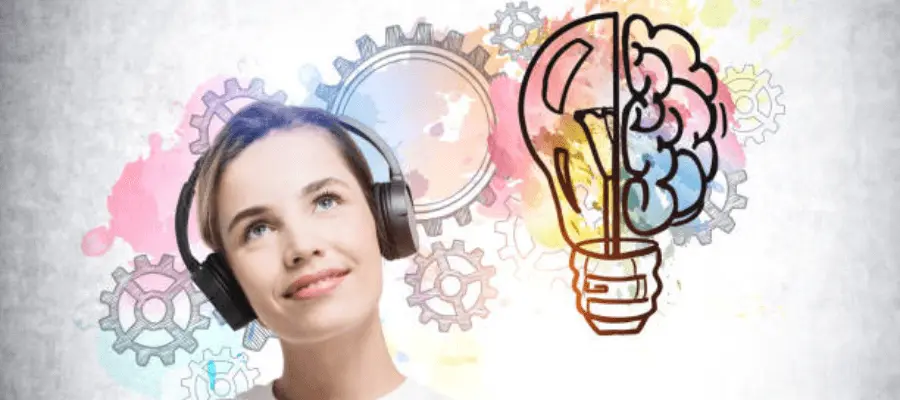- Understanding Mindful Listening
- The Impact of Modern Distractions
- The Benefits of Mindful Listening
- The Impact of Mindful Listening on Mental Health and Well-being
- Mindful Listening as a Mental Health Practice
- Techniques for Mindful Listening
- Overcoming Challenges
- Mindful Listening in Various Contexts
- The Power of Mindful Listening in Educational Settings
- The Resources
- Conclusion
- Frequently Asked Questions (FAQ)
In our modern, fast-paced world, the art of mindful listening stands as a valuable and often overlooked skill. We find ourselves amidst a constant barrage of distractions, from the persistent ping of notifications on our smartphones to the ever-present hum of the bustling city.
In this article, we delve deeply into the essence of mindful listening, uncovering its profound benefits, exploring practical techniques, and examining how it positively influences various aspects of our lives.
Understanding Mindful Listening
What is Mindful Listening?
Mindful listening, at its core, entails the practice of wholeheartedly directing your attention to the speaker, all the while maintaining an open heart and a clear mind.
It transcends mere auditory perception; it necessitates your complete presence in the moment and an unwavering commitment to grasping the speaker’s perspective without prejudice or preconceived notions. It’s about forging a genuine, empathetic connection.
How is It Different from Passive Hearing?
The passive hearing represents our default state, where we passively receive auditory stimuli without actively engaging with it.
On the other hand, is a purposeful and concentrated act that demands full participation. It entails active involvement, empathy, and a genuine desire to comprehend.
The Impact of Modern Distractions

The modern world presents an array of distractions that can pose challenges to practicing mindful listening.
The Digital Dilemma
Smartphones, tablets, and constant digital connectivity have significantly disrupted our ability to stay present during conversations. The ceaseless influx of notifications often takes precedence over the person standing or sitting in front of us.
The Noisy Environment
From the clamorous ambiance of bustling cafes to the cacophonous confines of our open-plan offices, our surroundings are saturated with background noise that can interfere with our capacity for attentive listening.
The Benefits of Mindful Listening

The practice of mindful listening brings with it a wealth of transformative benefits that extend far beyond mere communication. By cultivating this art, individuals can significantly enhance their lives, both personally and professionally.
In this section, we’ll explore these benefits in greater detail, shedding light on the profound impact they can have on one’s well-being and relationships.
1. Enhanced Communication
Mindful listening serves as the bedrock of effective and meaningful communication. By immersing oneself fully in a conversation, individuals can truly grasp the nuances of what is being said. This heightened understanding leads to clearer responses and, ultimately, more productive and satisfying dialogues.
2. Deeper Relationships
Mindful listening nurtures the growth of deeper, more profound relationships. When individuals commit to actively listening, they convey a genuine interest in the thoughts and emotions of others. This empathetic connection fosters trust, openness, and a sense of being heard and valued.
3. Reduced Misunderstandings
One of the primary benefits of mindful listening is the significant reduction in misunderstandings. When individuals are fully present during conversations, they are less likely to misinterpret information or jump to conclusions. This clarity helps prevent conflicts and miscommunications.
4. Emotional Intelligence
Engaging in mindful listening nurtures the development of emotional intelligence. By tuning into others’ feelings and perspectives, individuals sharpen their ability to recognize and manage their own emotions. This heightened emotional awareness enhances overall emotional well-being.
5. Conflict Resolution
Mindful listening plays a pivotal role in conflict resolution. When individuals genuinely listen to each other’s concerns and perspectives, conflicts can be addressed more constructively. This promotes collaborative problem-solving and the mending of strained relationships.
6. Enhanced Empathy
Empathy is a cornerstone of mindful listening. By seeking to understand others without judgment, individuals develop a profound sense of empathy. This empathetic perspective deepens connections and facilitates more compassionate responses to others’ experiences.
7. Personal Growth
Engaging in mindful listening is not merely about connecting with others; it also fosters personal growth. By honing their listening skills, individuals become more self-aware, patient, and open-minded, which leads to enhanced personal development.
The Impact of Mindful Listening on Mental Health and Well-being

In addition to its profound effects on interpersonal relationships and educational settings, the practice of mindful listening has a significant impact on mental health and overall well-being.
In this section, we’ll explore how embracing the art of mindful listening can contribute to reduced stress, improved emotional resilience, and enhanced mental clarity.
A Calm Amidst the Storm
It serves as a valuable tool for managing stress in our fast-paced lives. When we actively listen, we immerse ourselves in the present moment, letting go of worries about the past and anxieties about the future.
This immersion in the here and now can create a sense of calm, even in the midst of life’s storms.
Lowering Cortisol Levels
Studies have shown that engaging practices can lead to a reduction in cortisol, the hormone associated with stress. By practicing mindfulness and attentive listening, individuals can mitigate the harmful effects of chronic stress on their physical and mental health.
Embracing Emotions with Compassion
Mindful listening encourages individuals to embrace their emotions with compassion and without judgment. By listening to their own thoughts and feelings without trying to suppress or avoid them, individuals can build emotional resilience and develop healthier ways of coping with life’s challenges.
Strengthening Empathy
Empathy, a key component of mindful listening, is a powerful tool for navigating emotionally charged situations. By genuinely listening to others and understanding their emotional experiences, individuals can forge deeper connections and respond to conflicts or disagreements with greater emotional intelligence.
Quieting the Mental Chatter
One of the benefits of mindful listening is the ability to quiet the constant mental chatter that often fills our minds. By focusing on the speaker and the present moment, individuals can experience mental clarity and reduced rumination, leading to improved decision-making and problem-solving.
Improved Concentration
The practice also enhances concentration and cognitive function. When individuals can maintain their focus on a conversation or task without distractions, they are better equipped to absorb information, make connections, and engage in more meaningful interactions.
Mindful Listening as a Mental Health Practice

As a mental health practice, it complements other therapeutic approaches such as meditation, mindfulness, and cognitive-behavioral therapy. It provides individuals with a practical and accessible way to cultivate self-awareness, manage stress, and foster emotional well-being.
Incorporating mindful listening into one’s daily routine can be particularly beneficial for those dealing with anxiety, depression, or high levels of stress. It offers a simple yet powerful strategy for promoting mental health and nurturing overall well-being.
In conclusion, the practice goes beyond improving communication and relationships; it has a profound impact on mental health and well-being. By reducing stress, building emotional resilience, and enhancing mental clarity, individuals can experience a more balanced and fulfilling life.
Embracing mindful listening as a mental health practice is a valuable step toward nurturing a healthy mind and soul.
Techniques for Mindful Listening
Now, let’s delve into practical techniques
Active Listening Exercises
Active listening entails more than just hearing; it involves affirming your understanding by paraphrasing what you’ve heard. Repeating the speaker’s words in your own words demonstrates your engagement and attention.
Maintaining Eye Contact and Body Language
Consistent eye contact and open body language signify your full engagement in the conversation and your genuine interest in the speaker’s words.
Mindful Breathing during Conversations
Incorporate mindful breathing into your conversations. This practice helps to soothe your mind and retain your presence, even amid noisy environments.
The Power of Empathy
Empathy lies at the heart of mindful listening. Place yourself in the shoes of the speaker and strive to comprehend their perspective and emotions without judgment.
Overcoming Challenges
It can be challenging, but with dedicated practice, it becomes increasingly natural.
Managing Internal Distractions
If your thoughts begin to wander during a conversation, gently redirect your focus to the speaker. Resist the urge to formulate your response while they are still speaking.
Dealing with External Distractions
In noisy settings, kindly propose moving to a quieter location or suggest resuming the conversation at a more opportune time.
Mindful Listening in Various Contexts

The art of mindful listening is versatile and can enhance different facets of your life.
in Personal Relationships
In personal relationships, it deepens your connection with loved ones and facilitates more effective conflict resolution.
in the Workplace
In a professional setting, mindful listening improves teamwork, leadership skills, and the ability to resolve conflicts, fostering a more harmonious work environment.
for Personal Growth and Self-Awareness
On a personal growth journey, practicing mindful listening offers insights into your own thoughts and emotions, nurturing greater self-awareness and emotional intelligence.
The Power of Mindful Listening in Educational Settings
While the benefits of mindful listening in personal and professional contexts are widely acknowledged, its transformative potential in educational settings is an often underexplored territory.
In this section, we will delve into how the art of mindful listening can revolutionize the way we learn and teach, offering students, educators, and administrators a profound tool for personal and academic growth.
Empowering Students
Fostering Engagement and Comprehension
In the classroom, mindful listening empowers students to be active participants rather than passive recipients of information.
By training their minds to be fully present during lectures and discussions, students can better absorb and comprehend complex concepts. This heightened engagement leads to improved retention and academic performance.
Strengthening Interpersonal Skills
Mindful listening also nurtures crucial interpersonal skills among students. As they learn to genuinely listen to their peers, they develop empathy, patience, and a deeper understanding of diverse perspectives. These qualities are not only essential for academic success but also for building a more inclusive and compassionate society.
Transforming Teaching Practices
Enhanced Classroom Dynamics
Educators who incorporate mindful listening into their teaching practices can create more dynamic and inclusive classrooms. By encouraging students to actively listen to one another, teachers foster an environment where diverse viewpoints are respected and valued. This, in turn, stimulates meaningful discussions and fosters critical thinking.
Individualized Support
Mindful listening allows educators to better understand their students’ needs and challenges. By listening attentively to students, teachers can tailor their instruction to individual learning styles and provide more effective support to those who may require additional assistance.
Administrative Benefits
Conflict Resolution
Mindful listening is not limited to the classroom; it can also benefit administrators and school leaders. In the realm of education administration, conflicts can arise between students, parents, and staff. Employing mindful listening techniques can aid in resolving disputes more effectively, leading to harmonious school environments.
Decision-Making and Policy Development
Administrators who practice mindful listening when gathering input from various stakeholders are more likely to make informed decisions and develop policies that align with the needs and aspirations of the educational community.
This collaborative approach can lead to positive changes in curriculum, school culture, and overall student well-being.
The Role of Mindful Listening in Remote Learning
In an era where remote and online learning have become increasingly prevalent, mindful listening takes on new significance. It can bridge the digital divide by fostering a sense of connection and engagement among students and teachers separated by screens and miles.
Incorporating mindful listening practices into virtual classrooms can help combat the isolation often associated with online education.
In conclusion, the art of mindful listening has the potential to revolutionize education by empowering students, transforming teaching practices, and benefiting school administrators.
Whether in traditional classrooms or virtual learning environments, the practice of mindful listening can foster deeper understanding, inclusivity, and academic success, ultimately shaping a brighter future for learners of all ages.
The Resources
Delving deeper into the art of mindful listening requires access to resources that offer guidance, exercises, and insights. Below, we provide an extensive list of mindful listening resources, including books, podcasts, courses, and apps, to support your journey toward mastering this invaluable skill.
Books for In-depth Understanding
1. “The Lost Art of Listening” by Michael P. Nichols
A seminal work in the field of mindful listening, this book explores the nuances of active listening, the impact of modern distractions, and practical strategies for becoming a more empathetic and effective listener.
2. “Radical Acceptance” by Tara Brach
While not solely about mindful listening, this book delves into the power of self-compassion and mindfulness in transforming our relationships. It provides valuable insights into listening with an open heart.
3. “The Miracle of Mindfulness” by Thich Nhat Hanh
Written by a renowned Zen master, this book offers a profound exploration of mindfulness in everyday life, including how to apply it to listening. It’s a transformative read for those seeking a deeper connection with themselves and others.
Engaging Podcasts
1. “On Being” with Krista Tippett
This podcast series explores profound questions related to life, meaning, and humanity. Many episodes delve into the art of mindful listening and its role in fostering understanding and empathy.
2. “10% Happier” with Dan Harris
While primarily focused on mindfulness and meditation, this podcast often features discussions on the practice of mindful listening and its positive effects on mental well-being.
Interactive Courses
1. Coursera: “Mindfulness-Based Stress Reduction (MBSR)”
This online course, based on the program developed by Jon Kabat-Zinn, offers a comprehensive introduction to mindfulness, including mindful listening practices. It’s an excellent resource for those looking to deepen their understanding and practice.
2. Local Mindfulness Workshops and Retreats
Consider searching for local mindfulness workshops, retreats, or meditation centers in your area. These in-person experiences can provide hands-on guidance and a supportive community of like-minded individuals.
Mindfulness Apps
1. Headspace
This popular app offers guided meditation sessions, including ones focused on mindfulness and mindful listening. It’s suitable for beginners and experienced practitioners alike.
2. Calm
Calm features a wide range of meditation and mindfulness exercises, some of which are tailored specifically to improve listening skills and enhance overall mindfulness.
3. Insight Timer
Known for its vast library of free guided meditations, Insight Timer offers a variety of mindfulness practices, including mindful listening exercises led by experienced teachers.
Local Resources
Check with local universities, community centers, or mental health organizations for workshops, seminars, or support groups related to mindfulness and mindful listening. These resources often provide opportunities for face-to-face learning and practice.
Remember that the key to mastering mindful listening is consistent practice and a commitment to self-improvement. These resources serve as valuable guides on your journey toward becoming a more attentive, empathetic, and connected listener.
Whether through books, podcasts, courses, or apps, there are numerous avenues available to deepen your understanding and practice of this transformative skill.
Conclusion
The art of mindful listening is a potent tool for navigating the cacophony of the modern world. By actively and empathetically listening, you can enhance your communication skills, forge deeper relationships, and reduce misunderstandings. It is a skill that brings enrichment to both personal and professional spheres of life.
Frequently Asked Questions (FAQ)
1. Is mindful listening the same as active listening?
No, they share similarities but are not identical. Active listening is a component of mindful listening, which encompasses a broader practice of being fully present and empathetic while actively engaging in the act of listening.
2. Can mindful listening be practiced in noisy environments?
Yes, it can. Although it may be more challenging, it is achievable in noisy surroundings. Techniques such as maintaining eye contact and focused breathing can help maintain your presence.
3. How can I improve my mindful listening skills?
Enhancing mindful listening requires practice. Begin by consciously concentrating on the speaker, maintaining eye contact, and cultivating empathy. Over time, these skills will become more natural.
4. Are there any mindfulness apps that can assist in mindful listening?
Certainly. Several apps offer guided exercises and meditations aimed at enhancing mindful listening. Popular options include Headspace, Calm, and Insight Timer.
5. Can mindful listening aid in conflict resolution?
Absolutely. It promotes understanding and empathy, which are pivotal in resolving conflicts. It enables all parties to fully express themselves and facilitates the discovery of common ground for mutually agreeable solutions




